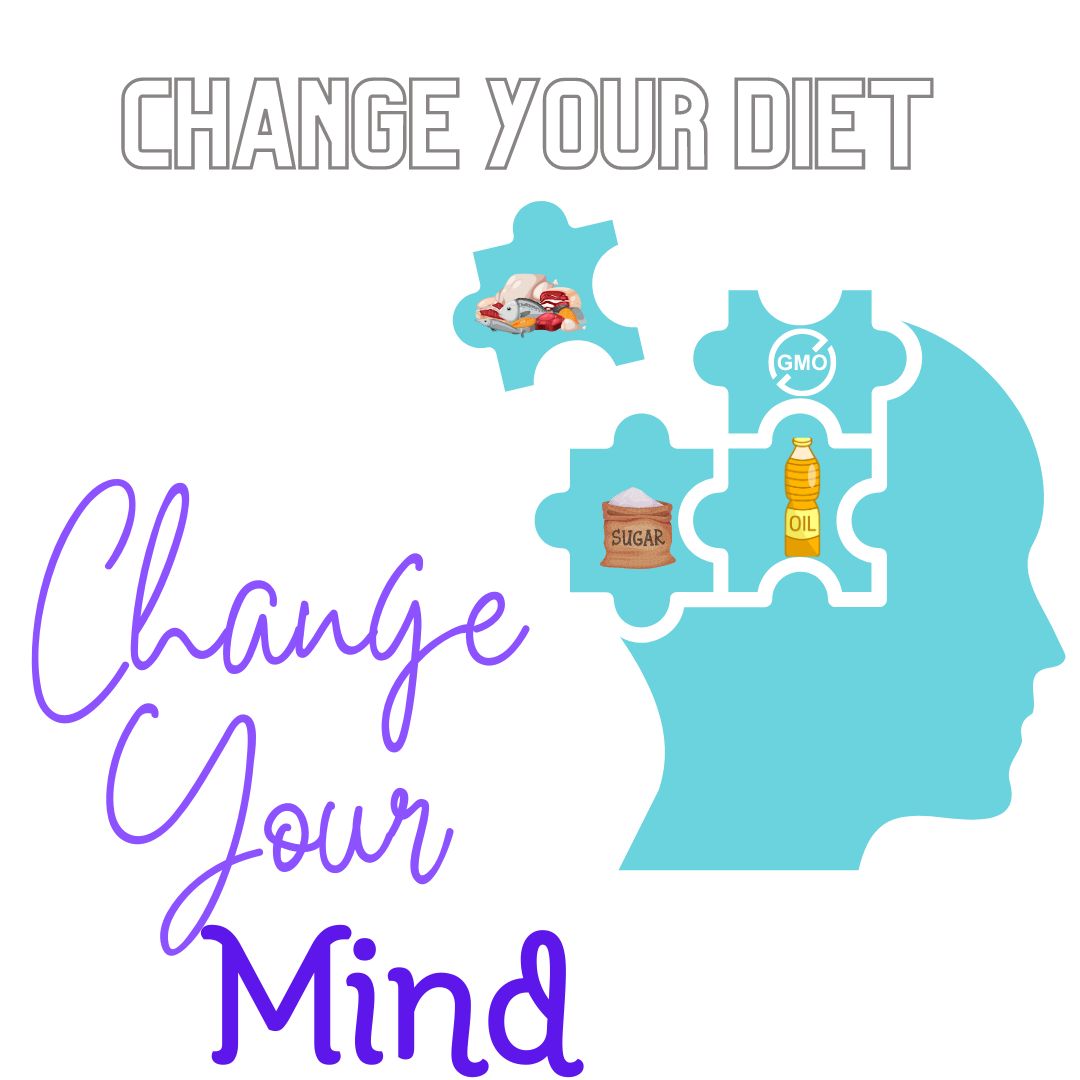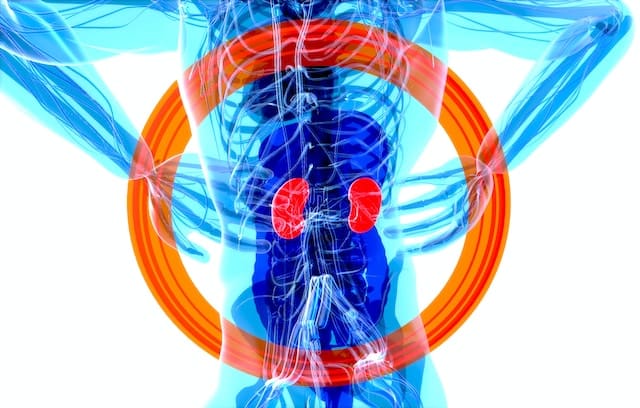In our increasingly busy lives, finding time to take care of our bodies can often take a backseat. One method that has gained attention recently for its wellness benefits is fasting. Fasting can take various forms but all types provide numerous health benefits backed by scientific research.
Table of Contents
- The Recommended Approach
- Ways to Maximize Fasting Benefits
- How to Break Your Fast
- Autophagy Benefits of Intermittent Fasting
- Mitophagy Benefits of Fasting
The Recommended Approach
Most importantly, do not just jump off the deep end and stop eating without a plan. If you do, you may feel like you ran into a brick wall. Slow and steady is the approach you want to take. Dip your toes in a bit. Make it barely noticeable. Here’s a possible way to ease into it:
- Eat dinner half an hour earlier for about a two-week period i.e. go from 8pm to 7:30pm for a while
- Eat dinner half an hour earlier for about another two weeks i.e. go from 7:30pm to 7pm for a while
- Repeat until your dinner time is close to 4 pm if possible or you skip dinner completely about 3 days a week
- Do the inverse with breakfast i.e. go from eating 7am to 7:30am for a couple weeks and so on
- Repeat until breakfast is around 10:30 am about 5 days a week
And just like that before you know it you are a fasting guru.

The times mentioned are the best times for most people based on typical lifestyles. They are not written in stone. Feel free to dial it back at any time. Don’t be too hard on yourself if you don’t progress as fast as you think you should. It’s not a race.
That being said, the earlier you have your last meal of the day the better your outcome. Late eating negatively influences your circadian rhythm and could prevent you from having good restorative sleep.
Most interventions like fasting should be done in cycles. Do not fast every day and when eating, eat all you want, without overeating of course. No matter what you eat you will still get some benefits from fasting. So you do you.
Do bear in mind that your choices have consequences and more often than not there are trade-offs. The healthier the food you eat, the better you will feel, the easier fasting will become and the better your overall well-being. You decide what matters most to you.
Ways to Maximize Fasting Benefits
Fasting does not need to be pain and suffering. To get the most out of your fasting practice without the dreaded side effects, consider these tips during your fasting window:

- Stay hydrated:
- Fasting induces fat loss, which is accompanied by a loss of water and minerals. Drinking water with trace minerals, and adrenal cocktail, Ceremonial Grade Green Tea, or Bulletproof coffee can help minimize hunger pangs and keep you feeling refreshed. Of course, no sugar consumption of any kind.
- Exercise:
- Training in a fasted state can maximize the benefits of both fasting and exercise. Exercise itself is a hormetic stressor that boosts autophagy. However, it’s essential not to push too hard during fasting periods.
- MCT Oil (C8):
- C8 MCT oil is readily absorbed in your gut and goes straight to your liver to be converted to ketones. Ketones provide an alternative energy source to glucose. This tells your brain to stop panicking, you are not starving to death.
- Activated Coconut Charcoal:
- Toxic substances are stored in your body fat. When you burn fat, stored toxins are released. Fasting leads to the reduction of stored fat. Many negative effects of fasting result from this activity. Activated Coconut Charcoal binds to toxins and facilitates the transport of toxins out of the body.
How to Break Your Fast

Meal choices when you break your fast can make a big difference to your desired outcome. Above all else, do not have carbohydrates and fats at the same time. Also, keep in mind this is just to break your fast so you can eat your regular meal after about an hour after breaking your fast.
Reduce Cortisol
- When you break your fast you do not want cortisol and insulin high at the same time. Take magnesium around two hours before breaking your fast. Around half an hour before breaking your fast, add about a teaspoon of Unrefined Sea Salt to your water and have a little bit of Ceylon Cinnamon.
Bone Broth
- Quick and simple, Bone Broth is an ideal option for breaking your fast.
Lean Protein
- This should be easy to digest. Think seafood or a non-dairy shake.
Omega 3
- Have a serving of omega-3 capsules to help to assimilate the protein you consume. Take some cod liver oil.
Sea Vegetables
- Have some kind of sea vegetable to replace any iodine you may have lost.
Fruit
- Have a little bit of kiwi, papaya or pineapple. You will get some enzymes to aid digestion and a bump of fructose to stimulate insulin and aid the uptake of protein.
An important caveat for pre-menopausal women is to avoid fasting the week before your period up to the first day of your period. Most sources of stress should be avoided during this time period. Feel free to have complex carbohydrates like sweet potatoes and plantains. Avoid all dairy.

Autophagy Benefits of Intermittent Fasting
- Intermittent fasting is a popular method of fasting that alternates between periods of eating and fasting. There are various forms, such as 16:8 (16 hours of fasting, 8 hours of eating) or 5:2 (5 days of normal eating, 2 days of reduced calorie intake). Intermittent fasting has been shown to provide numerous benefits to our bodies.
Weight loss and management:
- Intermittent fasting can help with weight loss by allowing the body to use stored fat for energy during fasting periods.
Improved metabolism:
- Fasting has been shown to increase metabolic rate, helping the body burn calories more efficiently.
Boosted brain function:
- Fasting’s hormetic stress can positively influence brain waves, improve memory, focus, and overall brain function.
Reduced inflammation:
- The break from constant food consumption during fasting can ease inflammation in the body.
Mitophagy Benefits of Fasting
Mitochondria, the “powerhouses” of our cells, play a crucial role in energy production, and stressing them can lead to positive changes. Hormetic stress, such as fasting, can improve mitochondrial efficiency and health, leading to better cellular function and even DNA repair. Studies have shown that this can help:
- Increase energy levels:
- With more efficient mitochondria, our bodies can produce more energy, making us feel more alert and energetic.
- Promote longevity:
- Improved mitochondrial function can slow down the aging process by decreasing the accumulation of damaged DNA in our cells.
- Prevent chronic diseases:
- Stronger mitochondria can protect against age-related neurodegenerative diseases like Alzheimer’s and Parkinson’s disease.
The human body evolved to endure cycles of alternating feasting and famine. Unfortunately, we no longer need to go hunting for food, we’re practically bombarded by it. That being said, constantly falling victim to your cravings all the time is not entirely your fault but it is your responsibility to elicit the appropriate response. Fasting, when done correctly, can be a powerful tool for enhancing overall wellness. By understanding the benefits of intermittent fasting and stressing your mitochondria, you can harness one of the cheapest positive health interventions.
Research Teong, X.T., Liu, K., Vincent, A.D. et al. Intermittent fasting plus early time-restricted eating versus calorie restriction and standard care in adults at risk of type 2 diabetes: a randomized controlled trial. Nat Med 29, 963–972 (2023). https://doi.org/10.1038/s41591-023-02287-7 Mathew R, Karp CM, Beaudoin B, Vuong N, Chen G, Chen HY, Bray K, Reddy A, Bhanot G, Gelinas C, Dipaola RS, Karantza-Wadsworth V, White E. Autophagy suppresses tumorigenesis through elimination of p62. Cell. 2009 Jun 12;137(6):1062-75. https://doi.org/10.1016/j.cell.2009.03.048 Kim I, Lemasters JJ. Mitochondrial degradation by autophagy (mitophagy) in GFP-LC3 transgenic hepatocytes during nutrient deprivation. Am J Physiol Cell Physiol. 2011 Feb;300(2):C308-17. https://doi.org/10.1152/ajpcell.00056.2010 Alirezaei M, Kemball CC, Flynn CT, Wood MR, Whitton JL, Kiosses WB. Short-term fasting induces profound neuronal autophagy. Autophagy. 2010 Aug;6(6):702-10. https://doi.org/10.4161/auto.6.6.12376 Heilbronn LK, Smith SR, Martin CK, Anton SD, Ravussin E. Alternate-day fasting in nonobese subjects: effects on body weight, body composition, and energy metabolism. Am J Clin Nutr. 2005 Jan;81(1):69-73. https://doi.org/10.1093/ajcn/81.1.69 Varady, K. A., Bhutani, S., Church, E. C., & Klempel, M. C. (2009). Short-term modified alternate-day fasting: A novel dietary strategy for weight loss and cardioprotection in obese adults. The American Journal of Clinical Nutrition, 90(5), 1138-1143. https://doi.org/10.3945/ajcn.2009.28380 Gabel K, Hoddy KK, Haggerty N, Song J, Kroeger CM, Trepanowski JF, Panda S, Varady KA. Effects of 8-hour time restricted feeding on body weight and metabolic disease risk factors in obese adults: A pilot study. Nutr Healthy Aging. 2018 Jun 15;4(4):345-353. https://doi.org/10.3233/NHA-170036 Song DK, Kim YW. Beneficial effects of intermittent fasting: a narrative review. J Yeungnam Med Sci. 2023 Jan;40(1):4-11. doi: 10.12701/jyms.2022.00010. Epub 2022 Apr 4. PMID: 35368155; PMCID: PMC9946909. Vasim I, Majeed CN, DeBoer MD. Intermittent Fasting and Metabolic Health. Nutrients. 2022 Jan 31;14(3):631. doi: 10.3390/nu14030631. PMID: 35276989; PMCID: PMC8839325. Mattson MP, Longo VD, Harvie M. Impact of intermittent fasting on health and disease processes. Ageing Res Rev. 2017 Oct;39:46-58. doi: 10.1016/j.arr.2016.10.005. Epub 2016 Oct 31. PMID: 27810402; PMCID: PMC5411330. Brocchi A, Rebelos E, Dardano A, Mantuano M, Daniele G. Effects of Intermittent Fasting on Brain Metabolism. Nutrients. 2022 Mar 17;14(6):1275. doi: 10.3390/nu14061275. PMID: 35334932; PMCID: PMC8954770. Jordan, S., Tung, N., Casanova-Acebes, M., Chang, C., Cantoni, C., Zhang, D., … & Mérad, M. (2019). Dietary intake regulates the circulating inflammatory monocyte pool. Cell, 178(5), 1102-1114.e17. https://doi.org/10.1016/j.cell.2019.07.050 Erlangga, Z., Ghashang, S. K., Hamdan, I., Melk, A., Gutenbrunner, C., & Nugraha, B. (2023). The effect of prolonged intermittent fasting on autophagy, inflammasome and senescence genes expressions: An exploratory study in healthy young males. Human Nutrition & Metabolism, 32, 200189. doi: 10.1016/j.hnm.2023.200189 Elias A, Padinjakara N, Lautenschlager NT. Effects of intermittent fasting on cognitive health and Alzheimer's disease. Nutr Rev. 2023 Aug 10;81(9):1225-1233. doi: 10.1093/nutrit/nuad021. PMID: 37043764; PMCID: PMC10413426. Xie, K., Neff, F., Markert, A. et al. Every-other-day feeding extends lifespan but fails to delay many symptoms of aging in mice. Nat Commun 8, 155 (2017). https://doi.org/10.1038/s41467-017-00178-3 Mitchell, S. J., Bernier, M., Mattison, J. A., Aon, M. A., Kaiser, T. A., Anson, R. M., ...de Cabo, R. (2019). Daily Fasting Improves Health and Survival in Male Mice Independent of Diet Composition and Calories. Cell Metab., 29(1), 221–228.e3. doi: 10.1016/j.cmet.2018.08.011 Trepanowski JF, Kroeger CM, Barnosky A, et al. Effect of Alternate-Day Fasting on Weight Loss, Weight Maintenance, and Cardioprotection Among Metabolically Healthy Obese Adults: A Randomized Clinical Trial. JAMA Intern Med. 2017;177(7):930–938. doi:10.1001/jamainternmed.2017.0936



















